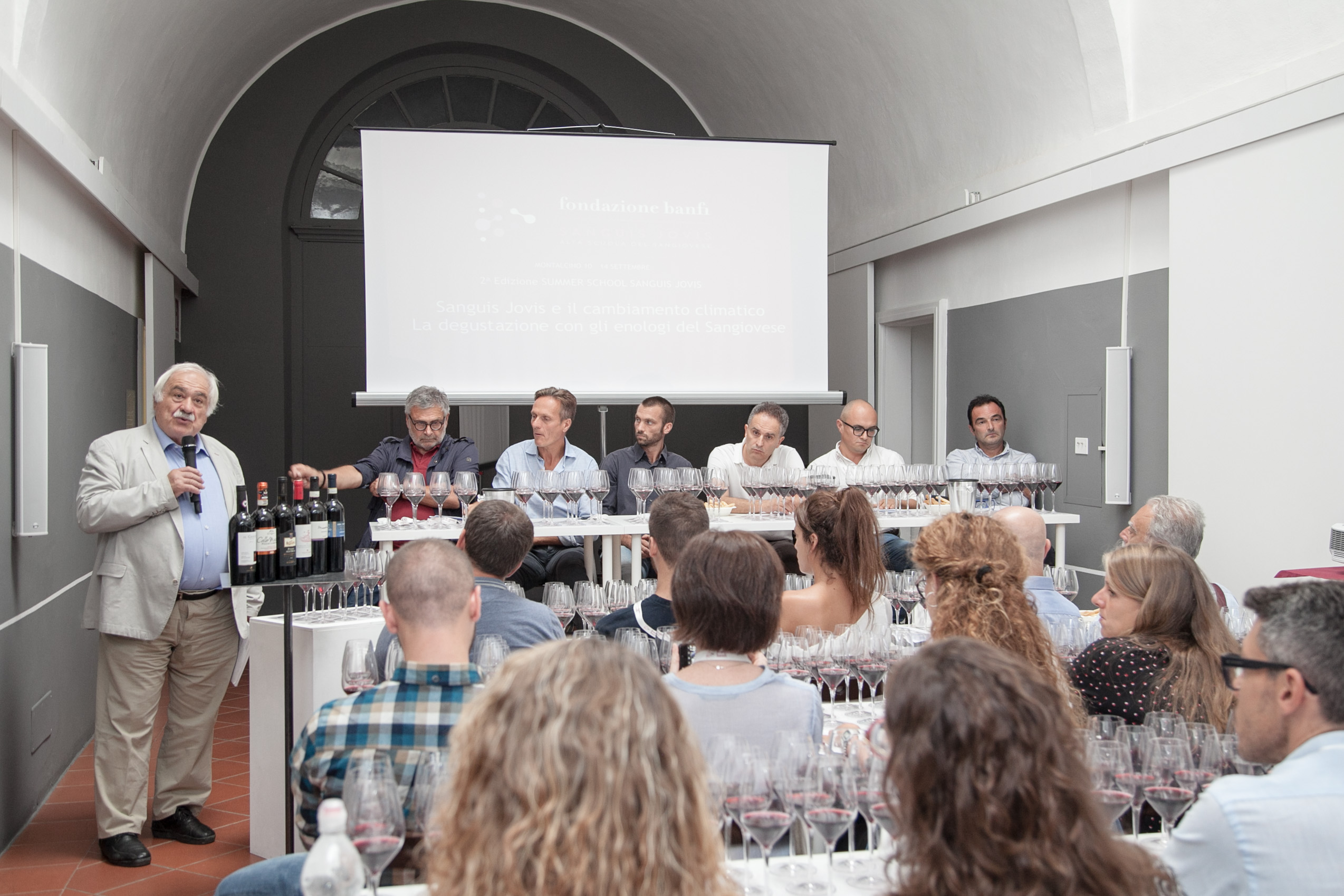The 10 Septembrhe 2nd edition of the Summer School of Sanguis Jovis-Alta Scuola del Sangiovese, the first Study Centre on Italy's most widely cultivated grape variety, will get underway. After the great success of the previous edition, the theme for this new course will once again be extremely topical and strongly linked - but not limited - to the climate change currently underway: Climate, Vine, Winery, Market: what will the Sangiovese of the future be like?
Professor Attilio Scienza and Professor Alberto Mattiacci, respectively President and Director of Sanguis Jovis, from the height of their acknowledged excellence in the scientific and didactic field, will guarantee, as in the past, the absolute qualitative and interdisciplinary level of the courses. The President of the Banfi Foundation, Rodolfo Maralli, points out that "The project, of which the Banfi Foundation is the promoter, was born in 2017 in the territory that symbolises Sangiovese, Montalcino, with the desire to increase and spread the culture of this extraordinary vine, through scientific research, the communication of knowledge and higher education.
From 10 to 14 September 2018, at O.CR.A. Officina Creativa dell'Abitare (Via Boldrini 4, Montalcino- Siena), with the 2nd edition of the Summer School, twenty students (10 Students, graduates no more than 18 months old, and 10 Professionals), all selected through a call for admission, will be able to follow the training course. The participation costs of the 10 Students will be totally covered by scholarships offered by local companies and institutions. The deadline for sending applications is 10 August 2018 and the complete call for applications is available on the Banfi Foundation website: https://fondazionebanfi.it/it/sanguis-jovis/formazione.php.
During the course, an attempt will be made to analyse and give concrete answers from an oenological, agronomic and marketing point of view to the climatic changes that are undoubtedly modifying and will modify the production of wine, specifically Sangiovese-based wine, thanks to lecturers and experts in the field who will bring their testimony and experience to the class.
It will begin with 'The vine's response to climate change', and continue on Tuesday 11 September with 'The impact of climate change on the physico-chemical and biological characteristics of soils and vine diseases'. On 12 September, 'Interventions in cultivation techniques to mitigate the effects of climate change with a view to sustainability' will be discussed, while on 13 September the issue will be explored from an oenological point of view, 'Climate change on the composition of wine, microbiological and oenological interventions'. Friday 14 will close with a day entirely dedicated to marketing and communication: 'New climate, new markets?

